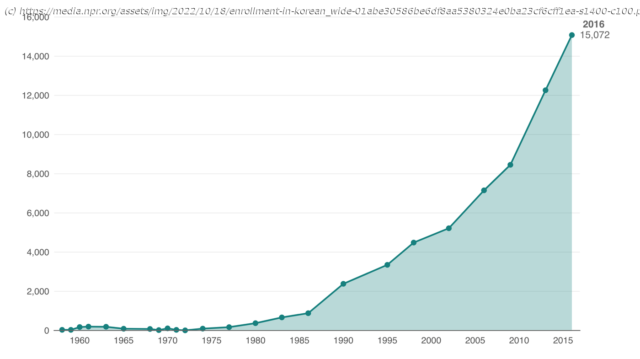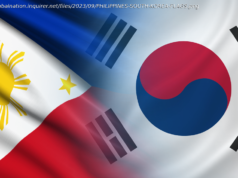Array
From K-pop phenomena „Gangnam Style“ and BTS to South Korea’s success on screen with Parasite and Squid Game, interest in Korean popular culture has skyrocketed in the past decade. One way experts have seen this interest manifest is in the steep rise in enrollment in Korean language classes.
U.S. college student enrollment in Korean language classes has risen 78% from 2009 to 2016, reaching 15,000, while total enrollment in language classes has plateaued in recent years, according to data analyzed from Modern Language Association. The only other widely learned language with significant growth in the span was American Sign Language, which increased enrollments by 37%.
East Asian Studies departments have struggled to accommodate the increasing demand for Korean classes, which historically have been limited and underresourced, experts say.
„Because language programs in East Asian Studies have traditionally focused on Mandarin and Japanese, Korean language is a new area that really started to be offered in most East Asian Studies programs only in the last 15 years or so,“ said Michelle Cho, assistant professor of East Asian studies at the University of Toronto. „There’s one main reason for this trend: K-pop“
When Victor Cha, a professor of government at Georgetown University, took Korean in the 1980s, his entire class was made up of heritage speakers like him — Korean Americans who were exposed to the language at home and sought to improve their fluency. Now half or more of Korean language students are made up of non-Korean students who discovered the Korean language through K-pop, he said.
Georgetown University rolled out a new Korean major this fall after seeing its Korean language classes reach full capacity.






